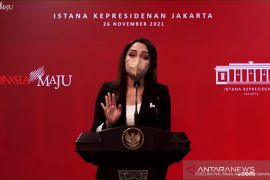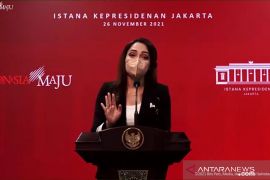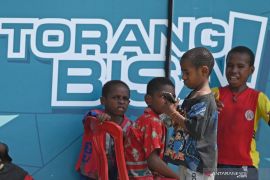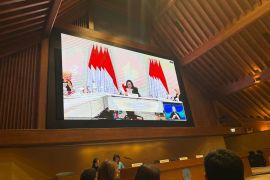Immunization must be administered according to the schedule that has been set in order to reach optimal protectionJakarta (ANTARA) - Children's vaccination must be administered in accordance with the schedule in a bid to offer optimum protection, according to government spokesperson for COVID-19 Handling Reisa Broto Asmoro.
"Immunization must be administered according to the schedule that has been set in order to reach optimal protection," Asmoro noted during a webinar themed "Save Our Families, Moving Past the Pandemic with Complete Immunization" accessed here on Monday.
Asmoro remarked that immunization comprised basic immunization and repeated immunization. Some immunizations are administered once, while some have to be repeated up to several times, she explained.
"Even at a certain age, there are those that need to be repeated," she stated.
According to Asmoro, immunization schedules were made on the basis of recommendations, such as from the World Health Organization (WHO) and the Indonesian Pediatrician Association (IDAI).
She explained that complete basic immunization is offered to infants up to nine months. Meanwhile, there are some follow-up immunizations that are offered to infants in the age bracket of 18-24 months.
"There are also follow-up immunizations given at the schoolgoing age or included in the schoolchildren's immunization month program or BIAS," she remarked.
Hence, she emphasized the importance of checking the child's immunization schedule in the maternal and child health book (KIA book) to ensure he or she has followed all the required immunizations.
The spokesperson remarked that during the Schoolchildren’s Immunization Month (BIAS), measles, rubella, and DT vaccines were administered to first graders in elementary schools, while the tetanus vaccine was offered to second graders and fifth graders.
The acting director for immunization management at the Health Ministry, Prima Yosephine, noted that the COVID-19 pandemic had triggered a decline in immunization programs, with the vaccination rate falling to its lowest level in decades globally in 2021.
In Indonesia, basic immunization in regions declined, from 93.7 percent in 2019 to 84.2 percent in 2021. During the same period, the immunization of babies under two years of age fell to 52 percent, from 72.7 percent earlier.
Related news: 2020 basic immunization achievement lowest in past decade: IDAI
Related news: Ministry to observe children's immunization month in May
Related news: Gov't looking to expand immunization coverage: Ministry
Translator: Zubi Mahrofi, Raka Adji
Editor: Sri Haryati
Copyright © ANTARA 2022












